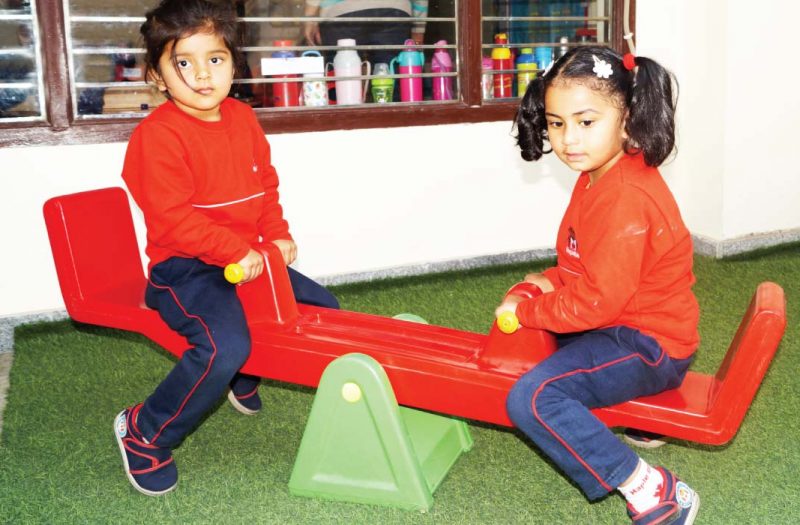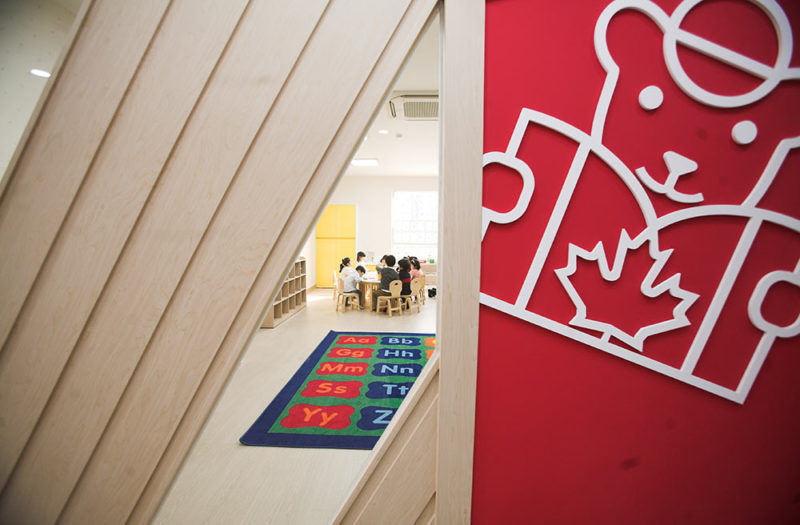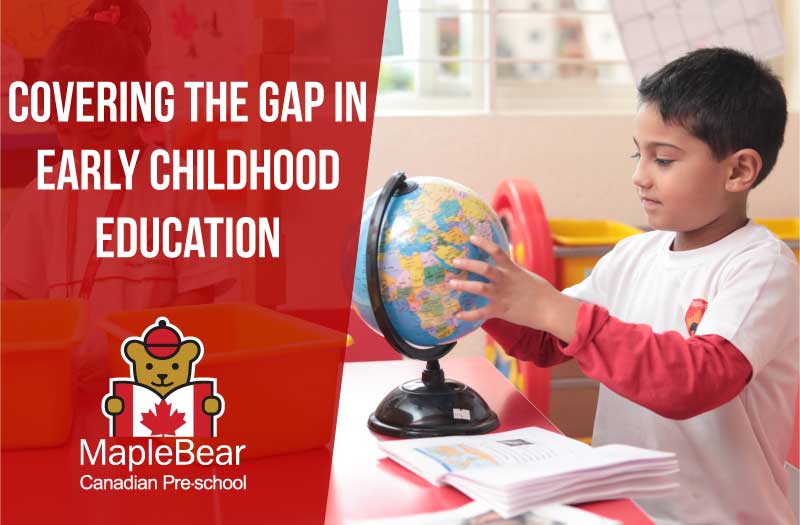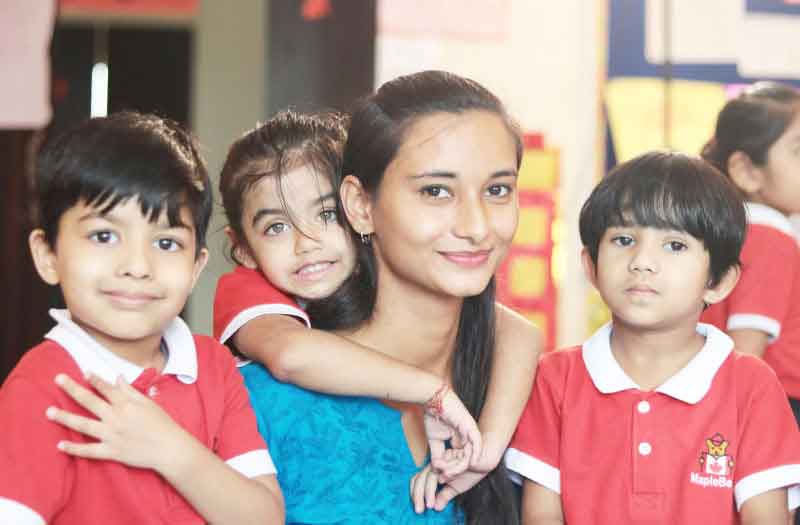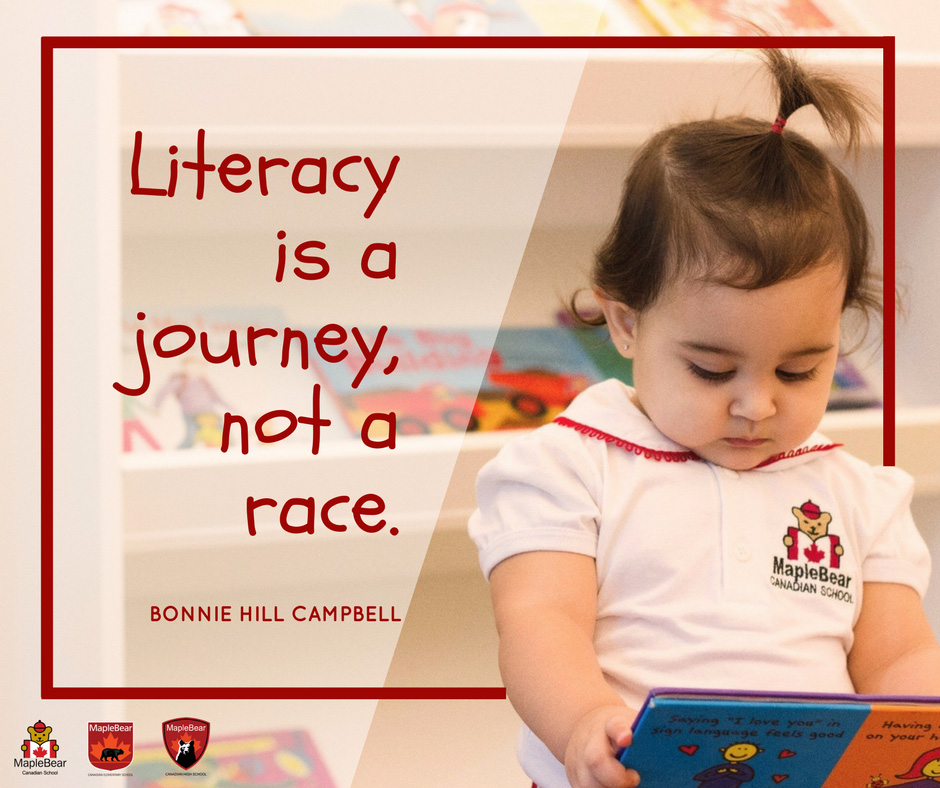
Early literacy development is not just about learning to read
Many people mistakenly believe that literacy development in pre-school children is only about teaching them to read through formal instruction.
In reality, early literacy development is a continuous process that begins in the first years of a child’s life. It is a complex task because oral language, reading, and writing skills are intimately linked and develop concurrently.
The first three years of exploring and playing with books, singing nursery rhymes, listening to stories, recognizing words, and learning to write a few of them are truly the building blocks for language and literacy development. Indeed, acquiring early literacy skills are essential to literacy development and should be the focus of early language and literacy programs, as they are at Maple Bear schools.
Formal instruction that requires young children who are not developmentally ready to read can actually be counter-productive and potentially damaging to children, who may begin to associate reading and books with failure.
Current early literacy theory emphasizes the more natural unfolding of skills through the enjoyment of books, the importance of positive interactions between young children and adults, and the critical role of literacy-rich experiences.
And, as children learn in this manner, they come to understand how oral language (listening to the sounds of words, associating meaning to the spoken word) and written language relate to each other.
This relatively new way of looking at early literacy development complements the current research supporting the critical role of early experiences in shaping brain development.
And did I mention early literacy development requires lots of parental support too? That goes without saying for who better than a child’s parents knows intimately how their child is developing?
Finally, as the late Bonnie Hill Campbell, who was an internationally known educational consultant specializing in the areas of literacy instruction and assessment, put it so well:
Literacy is a journey, not a race.
Rodney Briggs
President, Maple Bear Global Schools
Did you know?
Recent most research suggests that even infants can learn from shared reading experiences. Shared reading experience is a great method to teach infants. Large Studies show that babies exposed to regular reading sessions demonstrate increased brain activity in areas related to language and literacy improvement. This means that even the youngest children can benefit from early exposure and to the sounds and rhythms of language. This tells briefly that exposure of sounds and rhythms of language can hugely impact youngest children
Here’s how you can incorporate shared reading with your baby in 2024:
- Start early: It’s never too soon to begin reading to your Preschool child. Even newborns can benefit from the soothing sounds of your voice and the gentle rhythm of stories.
- Choose books with engaging illustrations: Babies are drawn to bright colorand interesting pictures. Select books with simple, bold images that capture their attention.
- Read expressively: Use different voices and sounds to bring the characters and story to life. This will help your baby develop their auditory awareness and language skills.
- Make it interactive: Point to pictures, ask questions, and encourage your baby to vocalize. This will help them connect the spoken word to the written word and develop their communication skills.
By incorporating these simple tips, you can create a foundation for early literacy development and set your child on the path to success. Remember, reading is a journey, not a race, and every moment spent exploring the world of books together is a step in the right direction.
By incorporating these simple tips, you can create a foundation for early literacy development and set your child on the path to success. Remember, reading is a journey, not a race, and every moment spent exploring the world of books together is a step in the right direction.
Additional interesting facts to consider:
- Babies can recognize familiar words and patterns as early as 6 months old.
- Children who are read to regularly have a larger vocabulary and are better able to understand and express themselves.
- Reading aloud to children can help to improve their social and emotional development.
FAQ
Q: What is early literacy development?
A: Early literacy development refers to the process by which children learn to read and write, beginning in the first years of their lives. This process is built on a foundation of oral language skills, including listening, speaking, and understanding the meaning of words.
Q: How important are the first three years of life for literacy development?
A: The first three years are crucial for literacy development. During this time, children’s brains are rapidly developing and they are incredibly receptive to learning. Engaging in activities like exploring books, singing nursery rhymes, and listening to stories helps build the foundation for later literacy success.
Q: Why is formal instruction in reading not recommended for young children?
A: Formal reading instruction can be counterproductive for young children who are not developmentally ready. It can lead to frustration and negative associations with reading. Instead, children should be encouraged to develop their literacy skills through more natural and enjoyable activities.
Q: What is the role of oral language in literacy development?
A: Oral language skills, such as listening and speaking, are essential for literacy development. They provide the foundation for understanding written language and learning to read and write.
Q: How can parents support their child’s early literacy development?
A: Parents can support their child’s early literacy development in many ways, such as:
- Reading aloud to their child regularly
- Talking and singing to their child
- Providing access to books and other literacy materials
- Creating a print-rich environment
- Participating in literacy-rich activities, such as storytelling and playing with rhyming games
- Providing access to books and other literacy materials
Q: What is the quote by Bonnie Hill Campbell about literacy development?
A: “Literacy is a journey, not a race.” This quote emphasizes the importance of taking a child-centered approach to literacy development. Children learn at their own pace, and it is important to focus on the journey of learning rather than rushing to achieve specific goals.

